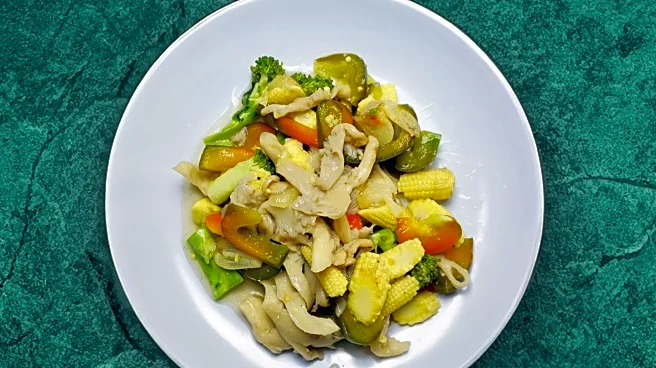What is the story about?
What's Happening?
Cuisines from around the world provide creative ways to reduce food waste by utilizing flexible recipes that accommodate various ingredients. These dishes, such as stews, egg ensembles, and pastries, allow for the incorporation of leftover or surplus food items. The upcoming International Day of Awareness of Food Loss and Waste on September 29 highlights the role of food waste in climate change and resource depletion. In the U.S., approximately one-third of food is wasted, with 35% occurring in homes. Culinary traditions offer solutions through zero-waste cooking, encouraging the use of available ingredients to create diverse and flavorful meals.
Why It's Important?
Reducing food waste is crucial for environmental sustainability and resource conservation. By adopting global culinary practices, individuals can minimize waste and save money, while also expanding their culinary skills and palate. These practices contribute to a broader movement towards sustainable living and responsible consumption. The emphasis on zero-waste cooking aligns with efforts to combat climate change and promote efficient use of resources. As awareness grows, more people may be inspired to adopt these practices, leading to a collective impact on reducing food waste.















